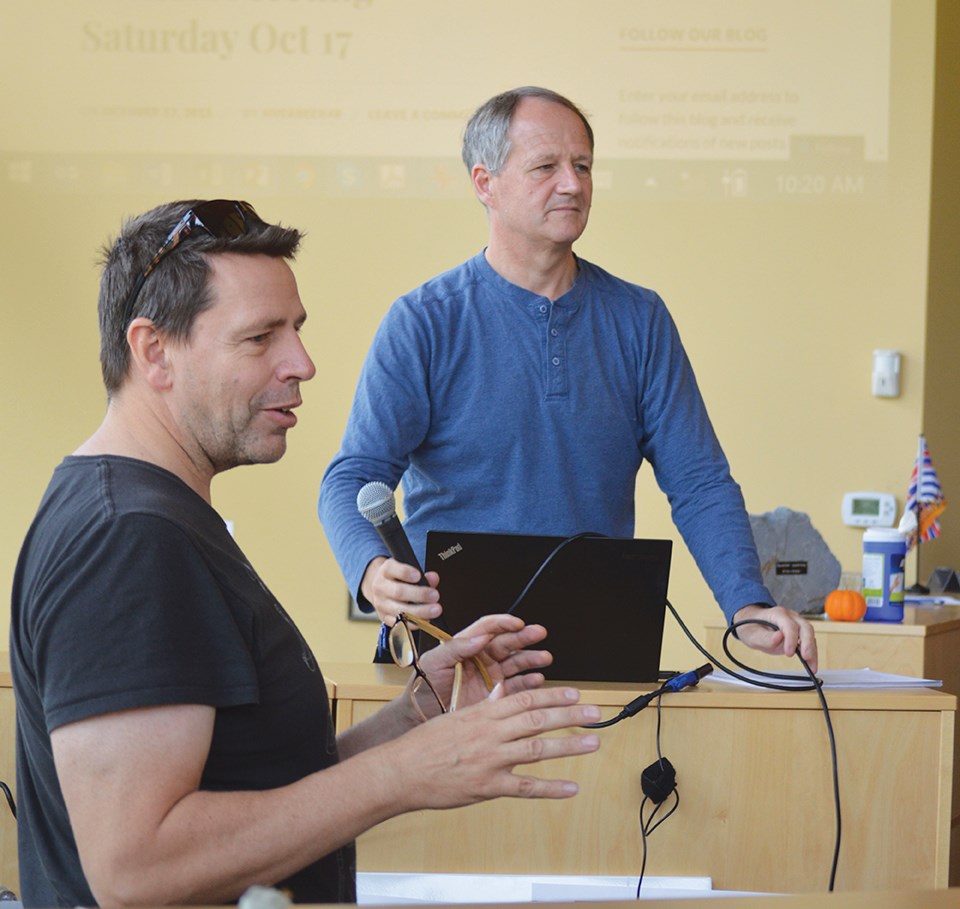What started out as a couple of grassroots groups of five to help Syrian refugees is becoming something more complex.
During a meeting held Saturday, Oct. 17 of local people trying to bring Syrian families to Squamish, organizers conceded their approach may change in light of how the federal government is funding projects to assist refugees from Syria, at least from what they have been able to learn since an initial meeting two weeks earlier.
The effort started out as two groups of five that came together to look at how they could help Syrian families.
“We’re hoping that there are other groups of five that arise,” Richard MacKellar, one of the organizers, said Saturday at the meeting at the Squamish Adventure Centre. “It’s five people that step up and say, ‘We’re backstopping an application.’”
However, the process might be more complicated and time-consuming if they choose to stick with the “group of five” or G5 approach. (These can include more than five members.) The reason is that this involves more paperwork, such as background checks aimed primarily at ensuring that dollars go to where they are intended, which can in turn slow down a campaign to help people desperate to escape the turmoil plaguing Syria.
Ultimately, a plan could mean federal dollars would go toward community efforts to sponsor families. For example, if it costs hypothetically $30,000 to sponsor a family for the year, the federal government could cover more than half, leaving local people responsible for only the last five months. How and when this might happen depends on several factors.
An option may be to partner with a recognized agency or organization such as a church that can then oversee funding and other community efforts to help Syrian families, once potential families have been identified. The money would have to be set up in a fund solely for the purpose of helping a family.
As MacKellar told the approximately 25 people at the meeting, one option locally might be to partner with the Queen of Peace Monastery, which already has a campaign to help people in the Kurdistan region of northern Iraq.
Still, for as much new information as the organizers have gathered in a mere two weeks, it is clear that the plan is still in its early stages and questions remain, but whatever means is pursued, identifying potential refugee families up front will be critical. Next steps should include looking for other groups to form, potential families and funding.
“We’re not experts at this. We’re fumbling through this for the first time,” MacKellar said.
A recent development that came together quickly is a new webpage to help organize the campaign at refugeesquamish.wordpress.com. It was put together shortly before the meeting by Henry Verbeek and Russ Robinson.
Verbeek emphasized that the site is a work in progress. “We just wanted to get it going as fast as we could.”
There is also a Facebook page called Squamish Refugee Response to publicize the project.
According to the Canadian Red Cross, over the past five years, half of Syria’s population has become dependent on humanitarian assistance, while eight million people have been displaced within Syria and another four million have fled to nearby countries.



